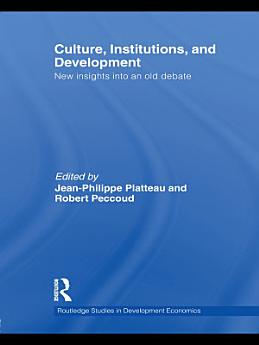Culture, Institutions, and Development: New Insights Into an Old Debate
About this ebook
Culture, Institutions, and Development addresses this debate at a concrete level by looking at five important issues: the role of tradition and its influence on development; the role of religion, with special reference to Middle Eastern countries; the role of family, kinship, and ethnic ties in the process of development; the relationship between culture and entrepreneurship; and the relationship between culture and poverty.
This collection offers a nuanced view that neither denies nor exaggerates the role of cultural factors in explaining relative growth performances across countries. Instead, the contributors focus on the dynamic, two-way relationship between culture and development in a way that stresses policy stakes and the value of multidisciplinary collaboration between economists, historians and other social scientists. This book will be of interest to postgraduates and researchers in all the social sciences, as well as to professionals working in national development agencies, international organisations, and Non-Governmental Organisations.
About the author
Jean-Philippe Platteau is Professor of Economics and Director of CRED (Centre for Research in the Economics of Development) at the University of Namur, Belgium.
Robert Peccoud, a sociologist, is Director of the Research Department at Agence Française de Développement (AFD), Paris.






